Genetic structure of Chilean populations of Seriola lalandi for the diversification of the national aquaculture in the north of Chile
DOI: https://doi.org/10.3856/vol43-issue2-fulltext-14
Abstract
Seriola lalandi has been recognized as a potential aquaculture species in Chile, however, little is known about the genetic structure of local populations. This is important, as the current production system is based on an initial wild catching and ill management of these stocks can cause reduced genetic variability. To assess the genetic structure of local S. lalandi we evaluated 27 published microsatellite markers developed from genomic libraries of other species of the genera. However only 12 markers could be used to properly assess the populations, most of these markers showed deviations from Hardy-Weinberg equilibrium with moderate inbreeding (F = 0.12). This species tends to show schooling behavior, so in all likelihood mating between relatives within small groups of fish is not unexpected. The population structure was assessed using Structure software, showing the presence of admixture with varying levels of individual ancestry. This was seen in both populations, without significant genetic differentiation. This may be explained by the migratory behavior, with mating between different populations likely to happen in small groups. Management of aquaculture resources is essential to secure a sustainable production system; this study is the first to provide estimates of genetic diversity of Chilean populations of S. lalandi.


